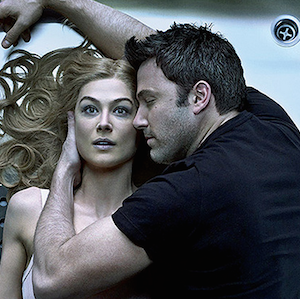
Why I Need a Break From Books About Dead Girls
Maybe it was listening to the Serial podcast, or watching the most recent season of House of Cards. Or maybe it was the huge mid-book slump I’m in, trying to finish the last 90 pages of a novel about a murdered teenage girl. One way or another, it has dawned on me clear as a bell: I need a break from books, movies, and TV shows about dead girls.
Dead girls — they seem to be everywhere in popular entertainment. There’s Laura Palmer in Twin Peaks, Lilly Kane in Veronica Mars, Amy Dunne in Gone Girl. Susie Salmon in The Lovely Bones, Alaska Young in Looking For Alaska, Dora Lange in True Detective. Shakespeare’s Ophelia, Desdemona, and Juliet. “Women in refrigerators” in comics and horror flicks. Dying princesses in fairy tales that must be saved with a magic kiss.
Dead girls keep popping up when I’m not even looking. By coincidence, over 65% of the fiction I’ve read this year features — you guessed it — dead girls, and a lot of those books have been really great reads, from literary fiction to comics to fantasy.
Why are we so obsessed with dead girls?
Their allure is archetypal, you could argue: the pure, the virginal, the beautiful. (The white.) They’re sacrificed on altars to make the gods happy. Spring turns into winter and Persephone hightails it back to Hades.
Buuuuut… I’m kind of over it. I need a break from dead girls as entertainment; girls who are thrown away for the sake of mystery, intrigue, and drama. It’s part of a larger problem where women are seen as dispensable and the real action goes on with or without them. Their deaths (and lives) are just titillating blips that set the stage for the actual story. And I need a break from books where dead girls are passive plot devices to further the narratives of men, murderers, investigators, and society at large.
I don’t mean to broadly condemn books about dead girls. Roberto Bolaño’s 2666 is one of the best books I’ve ever read — the middle 280 pages are a clinical account of hundreds of unsolved female murders in Juárez, Mexico, including the bungled investigations by local law enforcement. Bolaño did important work here, making the invisible visible, ensuring these dead women wouldn’t be erased. Hotel World by Ali Smith is also fantastic, as is the feminist Everything I Never Told You by Celeste Ng.
And yet, I’m burned out on books with dead girls who are romanticized and fetishized; girls who die so everyone else can live and tell interesting stories. For now, give me books about living girls — complicated, unlikeable, impure women, even screaming black-magic dragon vixens. Throw in a noble heroine or two.
But most of all, let them be alive.
____________________
Check out the sci-fi collection at the Book Riot Store!












